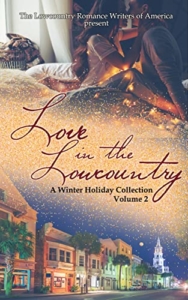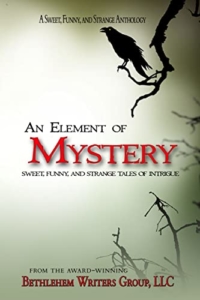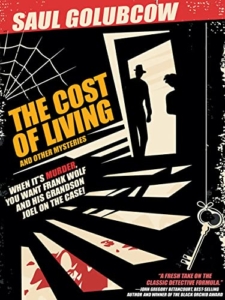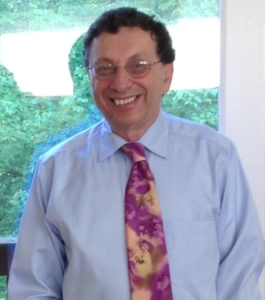Sparkle Abbey’s guest – Catriona McPherson
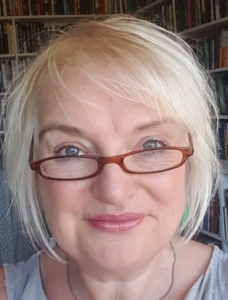 I was at a two-and-a-half hour Zoom meeting earlier today (the UK Society of Authors’ AGM) and in the montage of the year’s highlights there was a wee tiny clip of another Scottish writer, Damien Barr, talking about how he no longer minds cutting stuff out of his drafts, now he’s published, because he can always return to the cut subject in blogs.
I was at a two-and-a-half hour Zoom meeting earlier today (the UK Society of Authors’ AGM) and in the montage of the year’s highlights there was a wee tiny clip of another Scottish writer, Damien Barr, talking about how he no longer minds cutting stuff out of his drafts, now he’s published, because he can always return to the cut subject in blogs.
How, how, did that never occur to me in the course of writing thirty novels and mourning the stuff that ended up in the bin?
So, Stiletto Gang, here goes: you are the captive audience for my first resurrected-darlings blog post. Hope that’s okay.
SCOT IN A TRAP (Last Ditch Motel Book 5) is set in the present day but it concerns a time almost twenty years ago when Lexy Campbell was a school and then a university student, falling in (and out) of love for the first time. I wrote her first date, her first [billowing curtains] and the party at which her romance hit the skids. Inevitably, in the over-written first draft, I catalogued everything she wore. (I say “inevitably” because, if anyone can write about twenty years ago and not get there by visualising the fashion, I never want to go shopping with them.)
In the first draft, however, I made a rookie mistake. I cast my mind back. When I was at school, we were in the height of New-Romanticism. We crimped our hair, sewed brocade on shoulders and tied scarves round our legs. (Why did we tie scarves round our legs? We had necks.) By the time I got to university, I was dressing like Bruce Springsteen: sawn-off checked shirt, tight jeans, work boots. I stole my dad’s old cardigans. He didn’t mind: he had moved on to fleeces because it was modern times.
The trouble with mining these memories for Lexy’s look is that she’s twenty years younger than me. Oops.
So, in the second draft, she had ironed hair and wore low-rise boot-cut jeans, hanky tops, and rocked many a barely-there sandal – remember those bloody things? Like a slice of toast with a single piece of string glued to it?
She also wore the ubiquitous gap-year chic of a dress and trousers. I still remember the first time I ever saw someone in a dress and trousers. It was one of my students at the University of Leeds – literally just back from her gap year. Note, I don’t mean a salwar kameez; lots of Pakistani diaspora women wore them throughout my childhood in Edinburgh and, in Leeds, men wore them too. But a western dress over wide-leg jeans? Mind blowing. That was the first time I ever felt old. I genuinely thought she’d been in a rush that morning and got mixed up about what she meant to wear. Like the time I put my skirt on the ironing board, left the iron to heat up, grabbed some toast, brushed my teeth, put my coat on and went to work.
Once I’d got used to the idea, I embraced the dress and trousers trend enthusiastically. And Lexy looked fantastic in the second draft, wearing hers. She was slightly under-dressed in the third draft and, by the time I’d got to page-proof stage, I wasn’t relying on clothes to ground the story in its time at all, which freed up her fashion choices to play a role in the plot. (No spoilers.) It was fun while it lasted, though.
Have you got happy memories of the fashions of yore? Anything you swore you’d never wear and ended up loving? Anything you still swear you won’t be caught dead in if it comes back? I’m not sure I could go round by flares for a third time, but you never know . . .
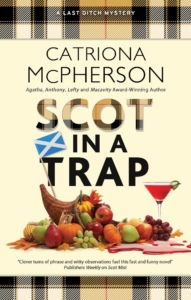 SCOT IN A TRAP
SCOT IN A TRAP
A mysterious object the size of a suitcase, all wrapped in bacon and smelling of syrup, can mean only one thing: Thanksgiving at the Last Ditch Motel. This year the motel residents are in extra-celebratory mood as the holiday brings a new arrival to the group – a bouncing baby girl.
But as one life enters the Ditch, another leaves it. Menzies Lassiter has only just checked in. When resident counsellor Lexy Campbell tries to deliver his breakfast the next day, she finds him checked out. Permanently. Shocking enough if he were stranger, but Lexy recognises that face. Menzies was her first love until he broke her heart many years ago.
What’s he doing at the Last Ditch? What’s he doing dead? And how can Lexy escape the fact that she alone had the means, the opportunity – and certainly the motive – to kill him?
 Catriona McPherson (she/her) was born in Scotland and immigrated to the US in 2010. She writes: preposterous 1930s detective stories, set in the old country and featuring an aristocratic sleuth; modern comedies set in the Last Ditch Motel in fictional (yeah, sure) California; and, darker than both of those (which is not difficult), a strand of contemporary psychological thrillers.
Catriona McPherson (she/her) was born in Scotland and immigrated to the US in 2010. She writes: preposterous 1930s detective stories, set in the old country and featuring an aristocratic sleuth; modern comedies set in the Last Ditch Motel in fictional (yeah, sure) California; and, darker than both of those (which is not difficult), a strand of contemporary psychological thrillers.
Her books have won or been shortlisted for the Edgar, the Anthony, the Agatha, the Lefty, the Macavity, the Mary Higgins Clark award and the UK Ellery Queen Dagger. She has just introduced a fresh character in IN PLACE OF FEAR, which finally marries her love of historicals with her own working-class roots, but right now, she’s writing the sixth book in what was supposed to be the Last Ditch trilogy.
Catriona is a proud lifetime member and former national president of Sisters in Crime. www.catrionamcpherson.com
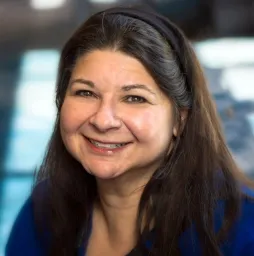

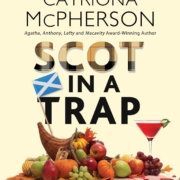
 I was at a two-and-a-half hour Zoom meeting earlier today (the UK Society of Authors’ AGM) and in the montage of the year’s highlights there was a wee tiny clip of another Scottish writer, Damien Barr, talking about how he no longer minds cutting stuff out of his drafts, now he’s published, because he can always return to the cut subject in blogs.
I was at a two-and-a-half hour Zoom meeting earlier today (the UK Society of Authors’ AGM) and in the montage of the year’s highlights there was a wee tiny clip of another Scottish writer, Damien Barr, talking about how he no longer minds cutting stuff out of his drafts, now he’s published, because he can always return to the cut subject in blogs. SCOT IN A TRAP
SCOT IN A TRAP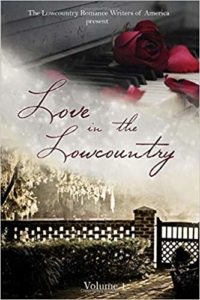 A few years ago, I thought about discontinuing my LRWA membership because I had joined several Sisters in Crime chapters and had become involved with the Mystery Writers of America and its regional Southeast chapter (SEMWA). Then, LRWA offered its members the opportunity to have their short stories published in a chapter anthology. I had been writing short stories and felt like I would like to try my hand at romance, so I continued to belong to the chapter. To be accepted for the anthology, each story had to take place during the winter holidays (Thanksgiving to New Years), take place in Charleston, go through two vigorous beta readings, and meet deadlines. In addition, each author had to develop promos to be used in social media. (I have always been impressed that romance writers know how to effectively sell their fiction!) The whole process was like boot camp and it was tremendously successful.
A few years ago, I thought about discontinuing my LRWA membership because I had joined several Sisters in Crime chapters and had become involved with the Mystery Writers of America and its regional Southeast chapter (SEMWA). Then, LRWA offered its members the opportunity to have their short stories published in a chapter anthology. I had been writing short stories and felt like I would like to try my hand at romance, so I continued to belong to the chapter. To be accepted for the anthology, each story had to take place during the winter holidays (Thanksgiving to New Years), take place in Charleston, go through two vigorous beta readings, and meet deadlines. In addition, each author had to develop promos to be used in social media. (I have always been impressed that romance writers know how to effectively sell their fiction!) The whole process was like boot camp and it was tremendously successful. 